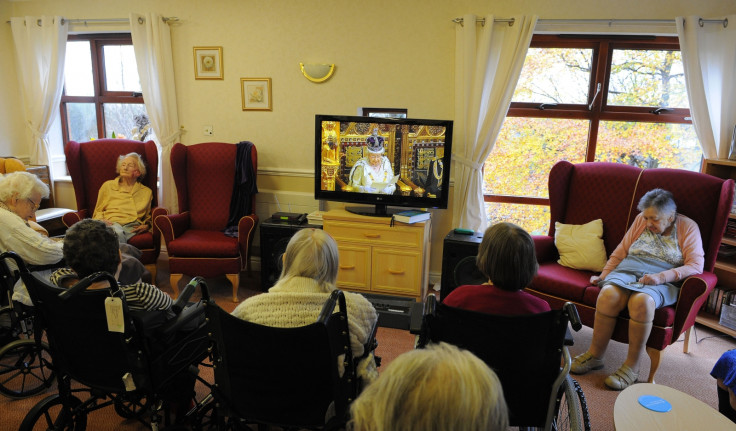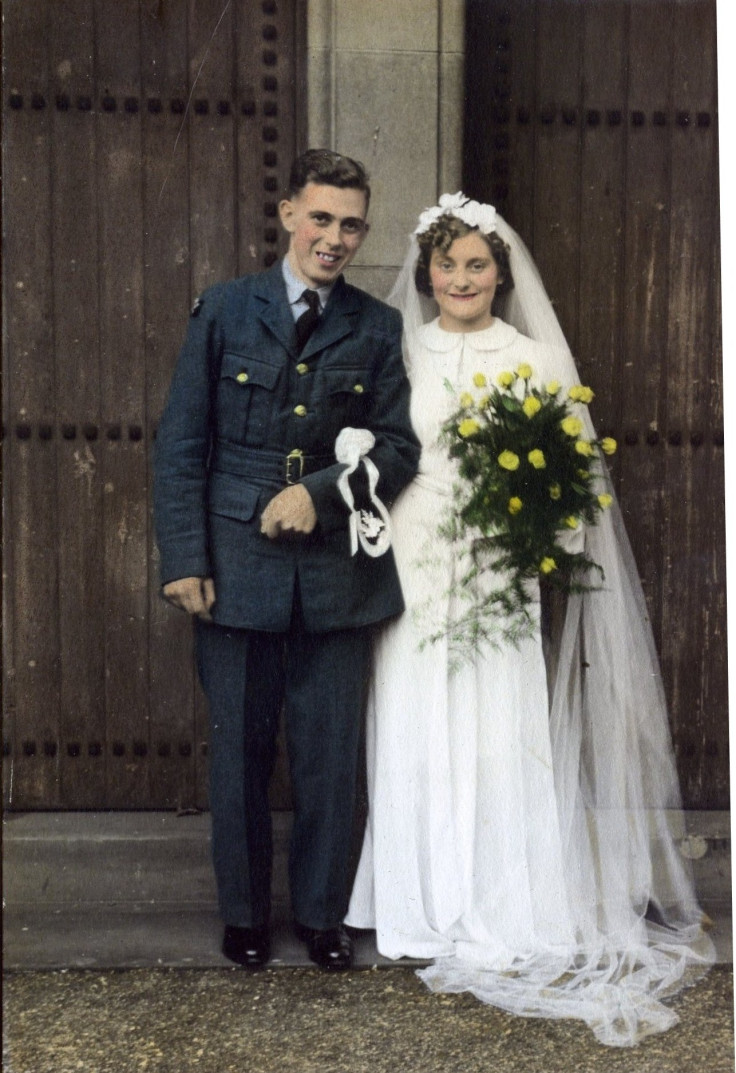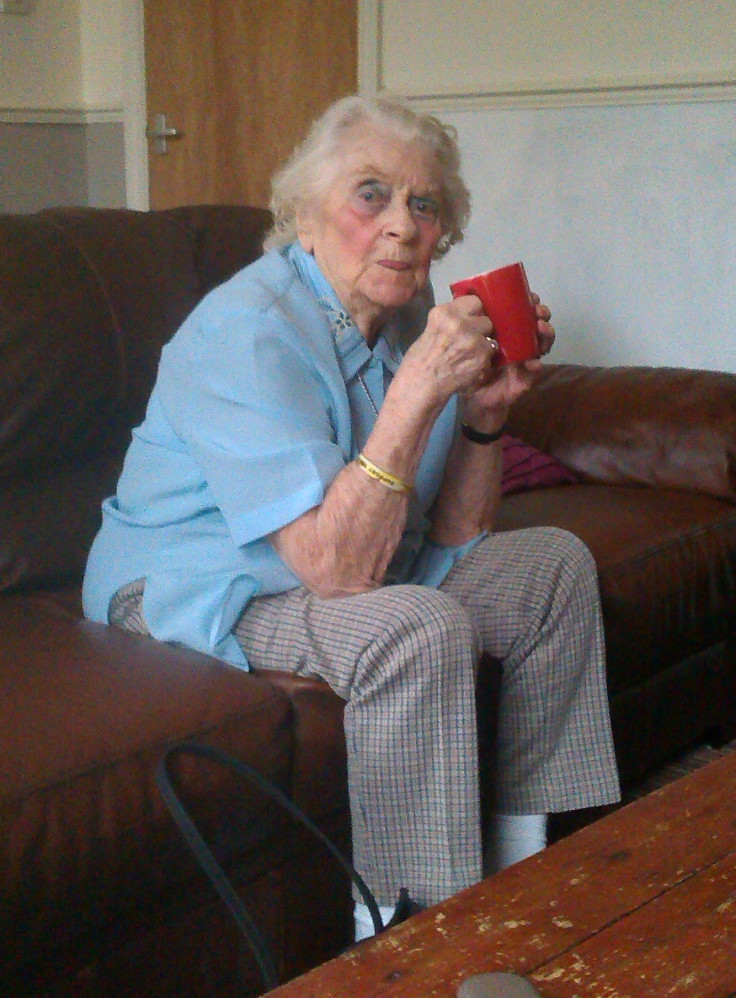Hidden crisis at Christmas: The pensioners with parents

Eileen is 93. Her husband Les passed away in January 2014, after 73 years of marriage, and so for the first time in her life this Christmas she will wake up alone, like half a million other older people nationwide.
I feel a bit guilty about Eileen – because she's my nan. Usually I see her over Christmas but this year I'm taking my own children to Australia to stay with auntie Kate – nan's daughter. Eileen's sons, Michael (my father) and Vincent (my uncle), will be in the country but Michael will be with his wife's family. This means Vincent – 65 and recovering from an operation – will be driving to London from Manchester to ensure nan has company for at least part of the day.
As society becomes richer and diseases and minor complaints such as diabetes become more manageable, people are living longer than ever before. This is giving rise to a social phenomenon society has never previously experienced: pensioners who care for their parents.

Age UK says 300,000 people in the UK are likely to have children in their seventies. A good thing, perhaps, but this evolving demographic puts huge strain not only on the NHS and the national pension pot but also on families.
My father is 70 and has a litany of health issues to manage; 10 years ago, he had a near-fatal heart attack. He should be enjoying retirement, his garden and his grandchildren but every few weeks, he also makes the gruelling 450-mile round trip from Yorkshire to see his mother who, aged 93, now lives alone.
Perhaps unsurprisingly for someone who lived through the Depression and witnessed German bombing raids, nan is a tough old bird. She survived strokes and a heart attack and lives with sciatica, "claw-hand" (Viking's disease) and other issues; at 90, she had a partial lobectomy to remove a lung tumour.
Ever since, she has struggled with breathlessness; she insists she felt better before her op and sometimes questions whether she had cancer at all.
Since her husband's death, nan has become noticeably more confused, telling me she hears him round the house and in her more lucid moments crying because she misses him so much. We worry that without grandad's stable influence, nan's mental faculties may deteriorate quicker than her physical health.
Despite her loneliness, which we can only partially alleviate, nan is determined to stay in her own home, which means the whole of our family chipping in and attempting to navigate our way round the health service – which can be either wonderful or appalling, depending on pot luck – to secure the support she needs to retain some degree of independence.
Caring for older loved ones costs economy £5.3bn a year
Our family is not exceptional. Almost 1.3 million older people devote at least some of their retirement to caring for ill partners or their own ageing parents, an increase of 35% in the last ten years. An estimated £5.3bn is annually wiped from the economy in lost earnings due to people who have dropped out of the workforce to take on caring responsibilities for older or disabled loved ones.
Increasingly, it is falling on the much-maligned "baby-boomers" to help not only their own children and grandchildren but their own parents, when they should be enjoying a well-earned rest. According to the NHS "about 960,000 people aged 65+ provide unpaid care for a partner, family or others but only 93,000 of these receive any carer-specific support services".

In many ways, my father's life reflects that of the protagonist of Melvyn Bragg's novel, Grace And Mary, who travels between London and Cumbria to see his own mother in a nursing home. Bragg based the novel partly on his own experiences, as his mother slipped into dementia.
Recently we have begun to wonder if nan's mental health is reaching the point she can no longer live alone.
She finds it almost impossible to take in new information and brings every conversation back to herself, yet for a few minutes she can be remarkably lucid, giving the impression her faculties are intact. Recently she was overheard telling a doctor that she didn't need any assistance.
We are beginning to suspect nan is so resistant to outside help because she would rather be attended by us, her own family. She tells how when she was a child her grandparents lived a few doors up the street. As lifestyles change, and so-called "beanpole families" are dispersed across the globe, there are many benefits in terms of freedom and diversity but also some negatives.
Nan is not resistant to our help
After much persuasion, nan has agreed to wear a pendant round her neck to summon help if she has a fall. But she refuses to allow us to make adaptations round the house, such as a walk-in shower or handrail on the stairs ("it's just another thing to clean"), despite the fact she wobbles scarily going upstairs.
Between us, we have organised a rota so nan sees at least one of us every couple of weeks. She also has a great deal of appointments for medical examinations, so we at least are reassured she is not one of the one million older people charity Age UK estimates have not spoken to anyone for a month.
As austerity continues to bite, families such as ours will have to shoulder greater responsibility to ensure older family members lead dignified lives. For all the frustration, we know we are lucky to have such durable genes. If people living longer pose a challenge for society, it is one my family are ready to face: there is plenty of love to go round.
As lifespans increase and new medicines enable us to live even longer, parents and children may even end up living together in the same retirement homes - a dismal or comforting prospect depending on your own family. It is not a prospect I lose sleep over: my wife and I chose to have children later in life, so by the time ours become pensioners, we will be long gone.
© Copyright IBTimes 2025. All rights reserved.





















